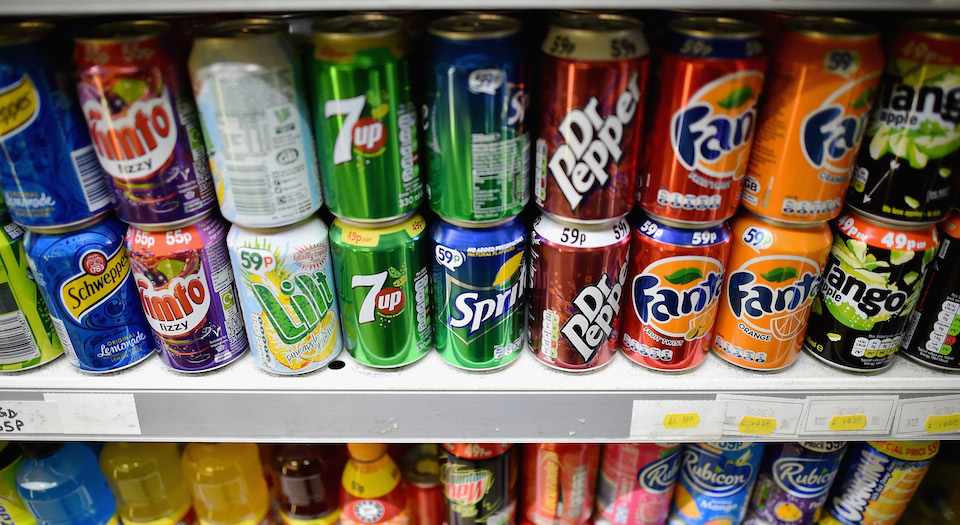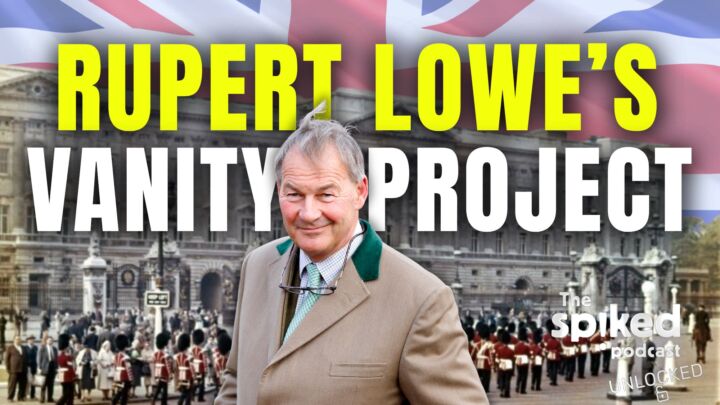
Long-read
Sin taxes and saint subsidies
A new book makes an incoherent case for taxing ‘unhealthy’ foods and subsidising those deemed ‘healthy’.
Want unlimited, ad-free access? Become a spiked supporter.
On BBC Radio 4’s Today programme a few months ago, I heard some befuddled killjoy from the British Medical Association demanding a state subsidy of ‘healthy’ food to go alongside a tax on ‘unhealthy’ food. When it was explained to her that the government does not actually control the price of food, she was at a loss to explain how such a system would work in practice.
Eighty pages into Bad Habits, Hard Choices, having teed the subject up with some bog-standard anti-consumerism, David Fell gets down to brass tacks and puts forward his own plan for sin taxes and saint subsidies in the food sector. It’s a terrible plan, but at least it is there in black and white. If the government wanted to use the tax system to control people’s diets, it couldn’t do much better than this, and so it deserves attention.
Fell calls his scheme SmartVAT, and it works as follows. We split food into three categories: healthy; unhealthy; and somewhere in between. We charge VAT on unhealthy food at 25 per cent, but set a negative rate (that is, a subsidy) for healthy food at 20 per cent. All other food is charged at a rate of five per cent, presumably to balance the books. These are Fell’s figures and he is open to suggestions about changing them, but you get the general idea. At the end of the tax year, retailers send off their VAT returns in the usual way, and pay tax (or receive a refund) based on the volume of sales of each of the three categories.
There are several problems with this, none of which is trivial. Contrary to what you may have heard from quack nutritionists and certain celebrity chefs, food cannot be neatly divided into ‘healthy’ and ‘unhealthy’ categories. Fell acknowledges that defining food as good, bad or indifferent is a challenging prospect, but believes it could be done by creating a citizens’ jury of ‘many hundreds of people, perhaps even thousands’ at a cost of ‘many millions of pounds’. Throwing money at the problem will not solve it, however. When he talks about ‘unhealthy’ food, he really means ‘fattening’ food – he lives in terror of the obesity ‘epidemic’ – but that is more a question of quantity than intrinsic qualities. Nuts and cheese are high in calories, but are not generally considered to be unhealthy. Orange juice is full of vitamin C, but has more sugar than a coke. Potatoes are not unhealthy, but what if the consumer takes them home and turns them into chips? Is butter better than margarine? Is a bag of salt – which contains no calories but will kill you if you eat it all at once – healthy or unhealthy? These examples could be multiplied many times over and raise problems that are not going to be resolved by the wisdom of crowds. As registered dieticians tire of having to explain, it is the diet that matters, not individual products.
Even if foods could be categorised in this simplistic fashion, there are further practical objections. Fell concedes that changing so many prices and settling up with HMRC at the end of each year would have been a ‘genuine administrative nightmare’ in the days when every product had to be labelled by hand, but reckons modern technology has the answer. ‘Every single item is barcoded’, he says, but that is only true of the big retailers. It does not apply to many small shops, market traders and greengrocers. SmartVAT is just the kind of burdensome regulation corporations love because they have the systems with which to handle it, while their smaller competitors struggle. Market traders would have every incentive to comply because fruit and vegetables, which are currently untaxed, would presumably be subsidised under Fell’s system, but there are endless opportunities for fraud if the government gives you money for every banana you claim to have sold.
Fell compounds these practical difficulties by insisting on mandatory labels showing the price of the tax or subsidy on each product. He has a peculiar belief that sin taxes only work if people are aware of them and repeatedly suggests that the government has conspired to shield consumers from the fact that taxes make up much of the price of petrol, tobacco and alcohol. A more plausible explanation is that politicians are worried that they would be swinging from piano wire if consumers realised quite how extortionate these taxes are. In any case, taxes reduce demand through the price effect, not public awareness.
Nevertheless, Fell argues that to get maximum benefit from his system, the amount of tax (or subsidy) must be shown on every product on the shelf. He portrays this as being no more onerous than the current system of displaying nutritional content on packaging, but it is fundamentally different. The cost of an ad valorem tax (such as a 20 per cent tax on soft drinks) is dependent on the price of the product. Unlike nutritional content, prices vary from retailer to retailer and change from week to week. The manufacturer cannot therefore display the correct tax rate on the product itself. It could only be done by the shopkeeper through the costly and time-consuming process of sticking labels on everything. In other words, it would create a ‘genuine administrative nightmare’ for retailers large and small.
What is this elaborate and unworkable system of price tinkering supposed to achieve? Fell is reluctant to make a prediction about its effect on either food consumption or obesity. He criticises the price-elasticity estimates of economists for having poor predictive powers. It is true that price elasticities are often guilty of spurious accuracy, but there is a broader truth that Fell brushes over. Whatever the exact figure may be, there is no doubt that demand for food and drink is highly inelastic. People do not significantly change their eating habits in the face of relatively small price changes. Some people might buy cheaper brands or shop in cheaper supermarkets, but the impact on calorie consumption, let alone on obesity and its associated health problems, is likely to be very trivial.
In every country that has experimented with such taxes, the effect has been too small to measure. Subsidies of the kind Fell advocates have rarely been tried, but I suspect that you could halve the price of most vegetables and people still wouldn’t eat the horrible things. Given the inelasticities of demand, Fell’s scheme amounts to a tax on the poor and a subsidy for the middle class. To those who might complain that this is a tad unfair, he lamely responds that ‘the system is already unfair’ because ‘cheap, convenient food is unfair’.
In recent years, nanny state campaigners have tried to turn complaints about regressive taxation on their head by pointing out that the poor suffer the worst health and, therefore, that it is really Big Soda/Big Food that is regressive. This is an obvious diversionary tactic, but, even if it had some substance, this claim would only be relevant if the proposed intervention was likely to work. And, short of rationing, it is difficult to think of any economic lever that could be pulled in an affluent society that would have any real effect on what people eat or how much they weigh. Alas, it seems that governments around the world are going to spend many years and vast sums of money trying to do the impossible. Unless politicians come to terms with the limits of political power and learn to live and let live, they may yet resort to ideas like those in this book.
Christopher Snowdon is director of lifestyle economics at the Institute of Economic Affairs.
Bad Habits, Hard Choices, by David Fell, is published by London Publishing Partnership. (Order this book from Amazon UK.)
Picture by: Getty Images.
You’ve hit your monthly free article limit.
Support spiked and get unlimited access.
Support spiked and get unlimited access
spiked is funded by readers like you. Only 0.1% of regular readers currently support us. If just 1% did, we could grow our team and step up the fight for free speech and democracy.
Become a spiked supporter and enjoy unlimited, ad-free access, bonus content and exclusive events – while helping to keep independent journalism alive.
Monthly support makes the biggest difference. Thank you.







Comments
Want to join the conversation?
Only spiked supporters and patrons, who donate regularly to us, can comment on our articles.